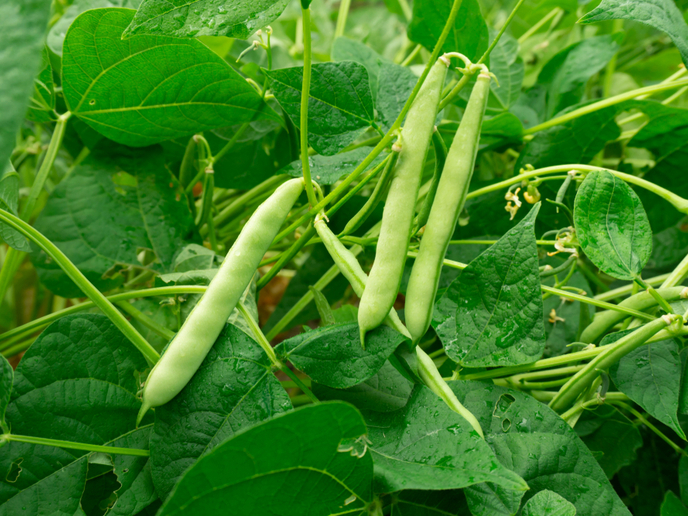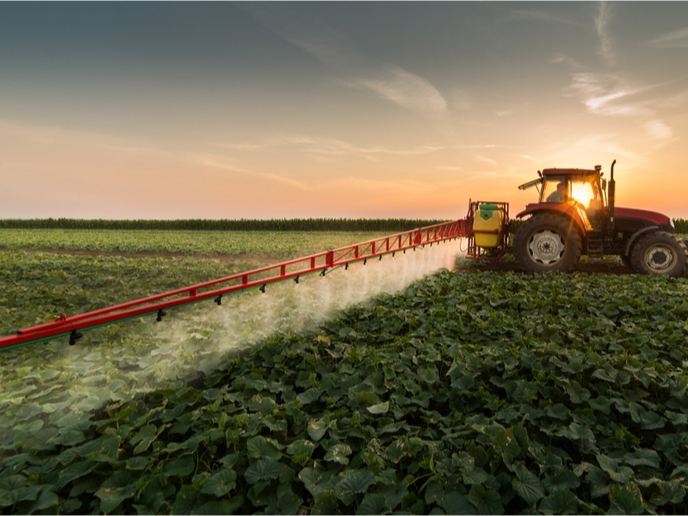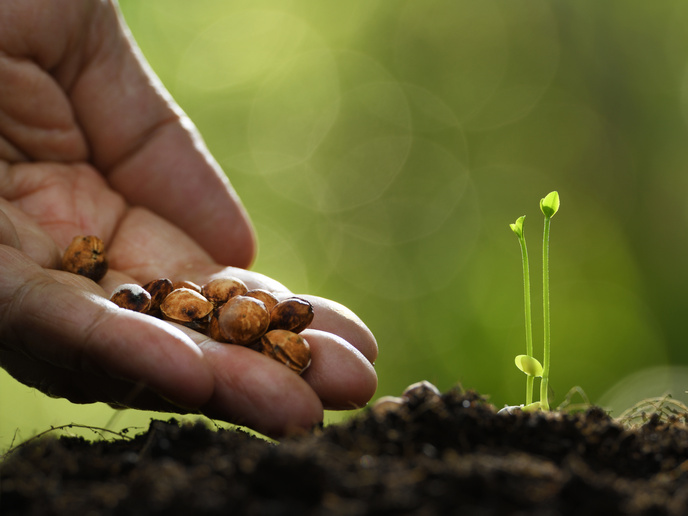Getting the qualitative light that plants need, naturally
If the weather is too bad to stay outside, common sense says to move things inside – and agriculture is no exception. “As climate change makes it increasingly difficult to sustainably produce crops outside, many farmers are turning to greenhouse farming,” says Anne-Sophie Quellec, marketing manager at CASCADE, a company specialising in the optically active materials integrated into agricultural films. With the support of the EU-funded ENLIGHT project, CASCADE has developed innovative new technology to make greenhouse agriculture more productive, more cost-effective and more resource-efficient.
Enhanced photosynthesis
Called LIGHT CASCADE®, this sunlight spectrum enhancement technology can be seamlessly integrated into a greenhouse’s film or glass structure. “By absorbing and converting part of the sunlight spectrum into the blue and red wavelengths most efficient for photosynthesis, CASCADE’s product significantly improves plant development and health while also increasing crop yield,” explains Quellec. The company further developed a proprietary process to incorporate its formulations into pigments, which makes the solution particularly durable. This means that, unlike the greenhouse film solutions currently on the market, CASCADE’s solution can be used for multiple growing seasons.
Increased yields
The LIGHT CASCADE® technology underwent vigorous testing in real-world conditions, with a total of 60 trials happening across Europe. During these tests, the technology was integrated into such greenhouse structures as high tunnels, double roofs (thermal curtains), low tunnels and classic films. “Regardless of the type of structure, using our solution always resulted in an added value of more than 10 % for the farmer, thanks to various agronomic benefits such as increased yields, earliness, reduction of pests and diseases, and water and fertiliser savings,” remarks Quellec. “More so, this increase was achieved by optimising the natural sunlight resource and without adding extra energy.” According to Quellec, this yield increase could result in more than 1 million metric tons of additional horticultural produce in the EU alone. “The increase in fruits and vegetables will reduce the EU’s dependence on foreign imports and help ensure a secure supply of fresh and healthy produce for European consumers,” adds Quellec.
An environment-friendly solution
The LIGHT CASCADE® technology also proved to be environmentally friendly. “By boosting the photosynthesis process, plants being grown under our enhanced films capture 10 % more CO2 than the average greenhouse,” she notes. Quellec estimates that as much as 51 000 tons of CO2-equivalent greenhouse gas emissions could be captured every year. Furthermore, numerous agronomic trials conducted over the past 10 years have shown that this boost in qualitative sunlight also means that plants are healthier and require less water, fewer pesticides and less fertiliser to grow.
Addressing the food security challenge
With the support of EU funding, CASCADE has been able to bring its innovative horticulture technology to the market. It has even landed its launch customers and now markets its solution through leading European film producers. “By increasing yields, our solution will help address the global challenge of feeding the world in a safe, secure and sustainable way,” concludes Quellec.
Keywords
ENLIGHT, climate change, crops, farmers, greenhouse farming, photosynthesis, greenhouse, agriculture, food security, horticulture







